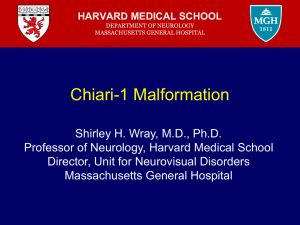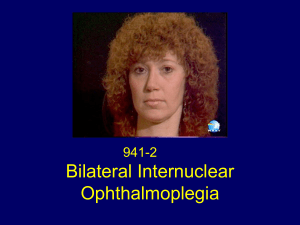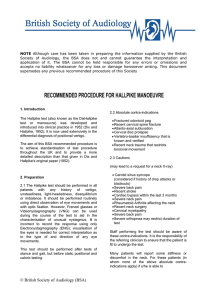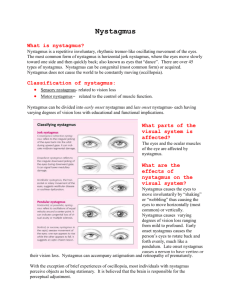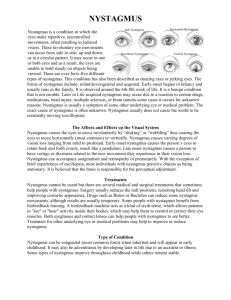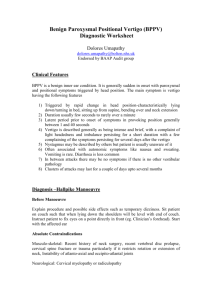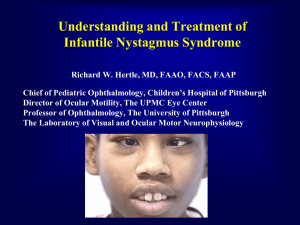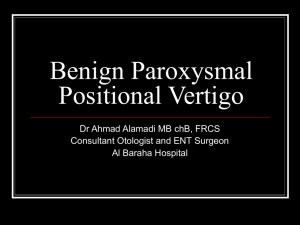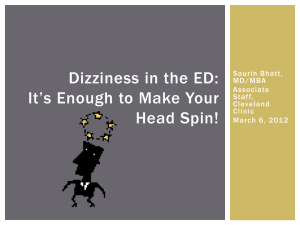Nystagmus
advertisement
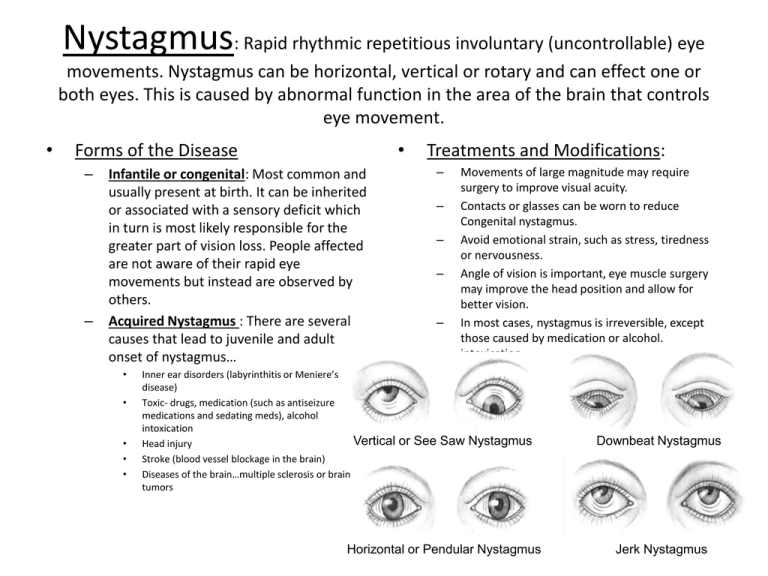
Nystagmus: Rapid rhythmic repetitious involuntary (uncontrollable) eye movements. Nystagmus can be horizontal, vertical or rotary and can effect one or both eyes. This is caused by abnormal function in the area of the brain that controls eye movement. • • Forms of the Disease – – Infantile or congenital: Most common and usually present at birth. It can be inherited or associated with a sensory deficit which in turn is most likely responsible for the greater part of vision loss. People affected are not aware of their rapid eye movements but instead are observed by others. Acquired Nystagmus : There are several causes that lead to juvenile and adult onset of nystagmus… • • • • • Inner ear disorders (labyrinthitis or Meniere’s disease) Toxic- drugs, medication (such as antiseizure medications and sedating meds), alcohol intoxication Vertical Head injury Stroke (blood vessel blockage in the brain) Diseases of the brain…multiple sclerosis or brain tumors Treatments and Modifications: – – – – – Movements of large magnitude may require surgery to improve visual acuity. Contacts or glasses can be worn to reduce Congenital nystagmus. Avoid emotional strain, such as stress, tiredness or nervousness. Angle of vision is important, eye muscle surgery may improve the head position and allow for better vision. In most cases, nystagmus is irreversible, except those caused by medication or alcohol. intoxication. or See Saw Nystagmus Horizontal or Pendular Nystagmus Downbeat Nystagmus Jerk Nystagmus Nystagmus • Developed by Emily Diaz – References American Nystagmus Network. (2002, February 21). General Information about Nystsgmus. Retrieved July 5, 2010, from http://www.nystagmus.org/aboutn.html Nystagmus: Medline Plus Medical Encyclopedia. (2009, March 26). Nystsgmus. Retrieved July 5, 2010, from http://www.nlm.nih.gov/medlineplus/print/ency/article/003037.htm Selected Anomalies and Diseases of the Eye. (1990). Nystsgmus. Retrieved July 5, 2010, from http://www.tsbvi.edu/education/anomalies/nystagmus. htm NYU Langone Medical Center. (2010). Nystsgmus. Retrieved July 5, 2010, from http://www.med.nyu.edu/patientcare/library/article/nystagmus.html Encyclopedia of Children’s Health. (2010). Nystsgmus. Retrieved July 5, 2010, from http://www.healthofchildren.om/n-o/nystagmus.html
